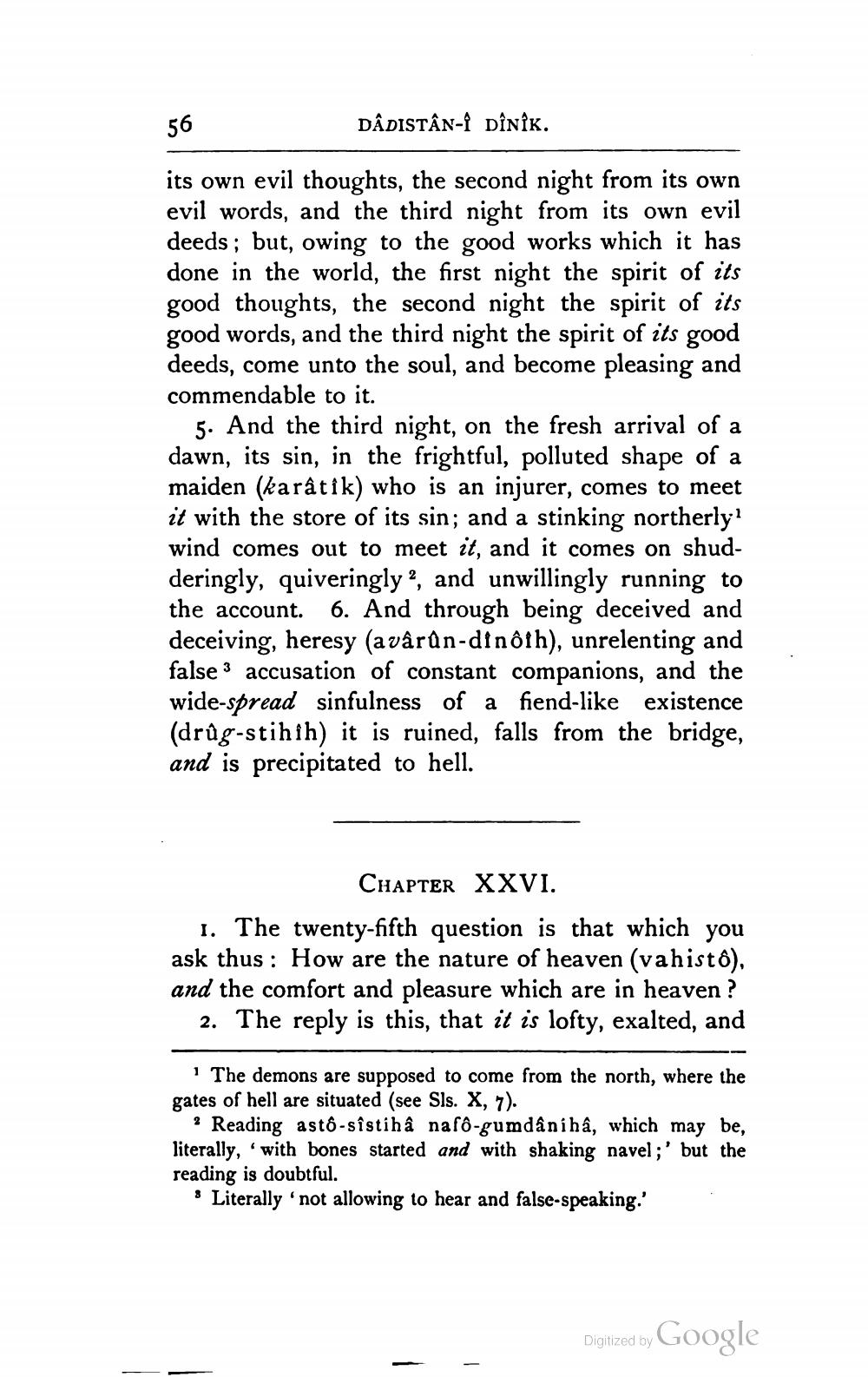________________
56
DÂDISTÂN-I DÎNÎK.
its own evil thoughts, the second night from its own evil words, and the third night from its own evil deeds; but, owing to the good works which it has done in the world, the first night the spirit of its good thoughts, the second night the spirit of its good words, and the third night the spirit of its good deeds, come unto the soul, and become pleasing and commendable to it.
5. And the third night, on the fresh arrival of a dawn, its sin, in the frightful, polluted shape of a maiden (karâtîk) who is an injurer, comes to meet it with the store of its sin; and a stinking northerly wind comes out to meet it, and it comes on shudderingly, quiveringly?, and unwillingly running to the account. 6. And through being deceived and deceiving, heresy (avârûn-dinộih), unrelenting and false 3 accusation of constant companions, and the wide-spread sinfulness of a fiend-like existence (drûg-stihih) it is ruined, falls from the bridge, and is precipitated to hell.
CHAPTER XXVI. 1. The twenty-fifth question is that which you ask thus : How are the nature of heaven (vahisto), and the comfort and pleasure which are in heaven?
2. The reply is this, that it is lofty, exalted, and
1 The demons are supposed to come from the north, where the gates of hell are situated (see Sls. X, 7).
? Reading asto-sîstihâ naro-gumdaniha, which may be, literally, with bones started and with shaking navel;' but the reading is doubtful.
& Literally not allowing to hear and false-speaking.'
Digitized by Google




